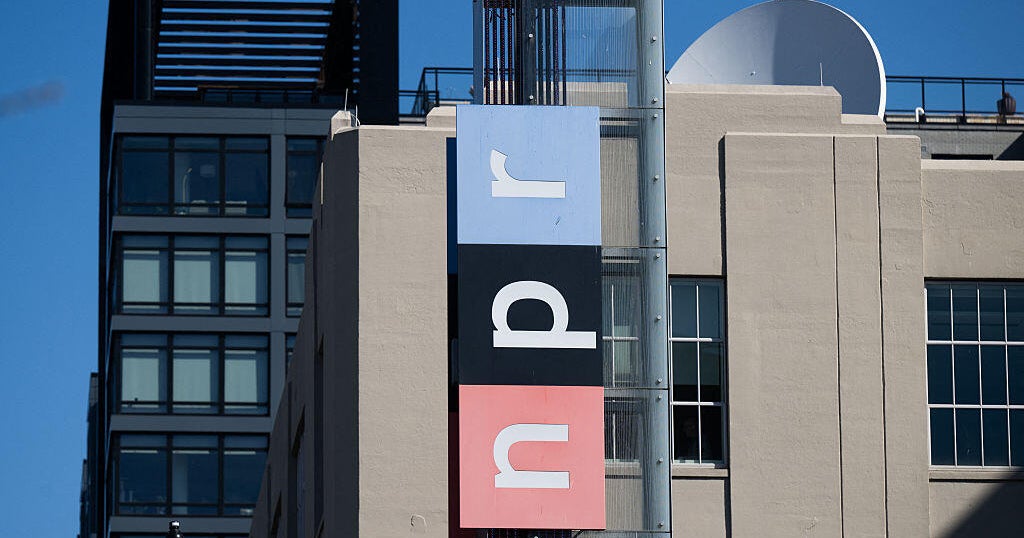In a marked escalation of his administration’s efforts to control federal spending, President Donald Trump, on Thursday, signed a highly controversial executive order designed to significantly reduce public subsidies to two major broadcasters, PBS and NPR, citing “bias” in their reporting. This executive order specifically mandates the Corporation for Public Broadcasting (CPB) and other relevant federal agencies to end their financial support for both NPR and PBS. Moreover, it directs these agencies to proactively seek out and eliminate any indirect sources of public financing that may benefit these organizations.
The President’s move seems to stem from a perception that these broadcasters use their platform to disseminate what he considers “radical, woke propaganda” rather than neutral news. According to a post on the White House’s social media page, which announced the executive order, these outlets allegedly misappropriate millions in taxpayer dollars for this purpose. It marks a significant moment as PBS and NPR receive approximately half a billion dollars annually from federal funds managed by the CPB.
The groundwork for this severe funding reduction had already been laid, with NPR and PBS bracing for major cuts since Trump’s election victory. Historically, the Republican party has harbored reservations about the objective nature of the reporting by these two organizations, although both broadcasters have defended their editorial independence and balanced reporting standards rigorously.
In response to the executive order, a statement by NPR emphasized that the intent behind these cuts extends beyond fiscal responsibility goals. Released on Friday, NPR condemned the order: “This is not about balancing the federal budget.” The statement further criticized the move as a direct challenge to the First Amendment rights of both NPR itself and its affiliated stations across the country, which strive to serve their local communities through diverse programming. The statement also highlighted the infringement on the rights of the listeners and donors who support independent news.
Expressing similar concerns, Paula Kerger, the President and CEO of PBS, last month articulated the serious implications that such a funding cut would pose. She outlined that stripping PBS of federal funding would disrupt the vital services it provides to the American populace and undermine the comprehensive media landscape that includes preparation for children’s educational success through enriching and inspiring content. Kerger reaffirmed the historically bipartisan support for PBS, which has enabled it to offer extensive services crucial for the educational and cultural development of the American public.
Moreover, this week saw the Corporation for Public Broadcasting taking legal action against President Trump following his decision to dismiss three of its five-member board. This move by the President was described by CPB’s lawyers as an overreach of his authority, potentially paralyzing the board’s ability to meet and conduct necessary operations. The CPB, through its attorneys, emphasized that Congress explicitly established the CPB as a private corporation, over which the President has limited control, a control that extends only to nominating board members with the Senate’s consent.
This contentious scenario is further complicated by a recent announcement from the White House seeking Congressional support to rescind CPB’s funding as part of a broader $9.1 billion budget cut proposal. According to the budget director, Russell Vought, this is anticipated to be just the initial phase of several proposed cutbacks.
Established in 1967, the CPB plays a critical role in the American public media landscape. It provides essential support to a multitude of media outlets, including numerous radio and TV stations that depend on CPB’s funding for content that caters to the varied interests and needs of American viewers and listeners.
Given the unfolding developments, the public and political response to this executive order may shape the future trajectory not only of public broadcasting in the United States but also of public policy concerning media independence and federal oversight. It would appear that the stakes are high, not just for the broadcasters in question, but for the broader ethos of public broadcasting and its role in maintaining informed public discourse in a democracy.
As this situation develops, many eyes will be on Congress to see how it responds to the administration’s fiscal strategies, and on the courts, to assess the legality of the President’s executive actions against the CPB’s board members. It also remains to be seen how industry stakeholders, civil liberties advocates, and the general public will navigate these choppy waters to either defend or condemn these significant federal interventions into public media.









